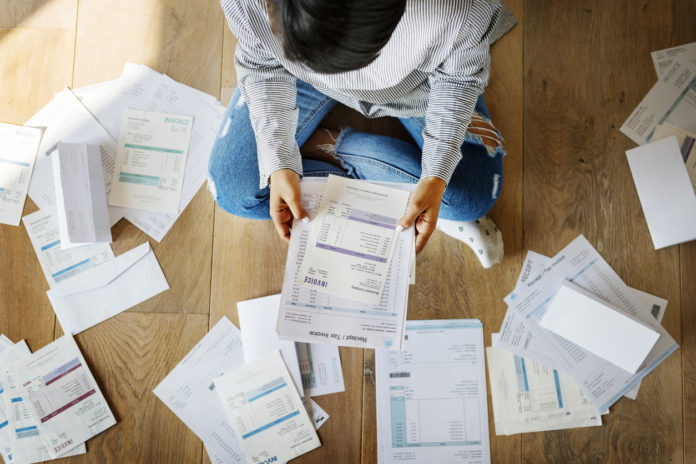Accumulating a scarily large sum of debt can happen easier than you think. While most of us are aware of the risks involved with lending there is an elephant in the room that needs discussing; the reality of how comparatively easy it is for the average Joe to obtain credit these days, it can be all too straight-forward to get yourself into a debt situation that you find it difficult to escape from.
Indeed, some unfortunate folk find they are constantly in some level of debt as they repeat the debt cycle of borrow > spend > repay > borrow, which for some people who are not effectively financially literate, can mean the accumulation of a large sum of debt that becomes crushing. Unfortunately, the debt spiral is nothing new to consumers.
One of (the many) problems with debt is that it’s scientifically proven to be a root cause of stress and psychological distress in your life. It affects everything from your family life to your blood pressure and quality of sleep. If you’re anything like me, you will easily recall laying awake at night struggling to sleep at some point in your life because of worrying about how you were going to afford rent next month, pack your kids a decent lunch, heat your home… you get the idea.
However, you don’t have to live with that weight around your shoulders forever. Even though it can feel inescapable at times there are uplifting stories out there on the web, like this one, which recount how people go from bankruptcy and large sums of debt to being back in the black. Admittedly we’re cherry-picking a particularly dramatic example here, but the fact remains that nothing is forever – even your debt. There are ways forward even if you can’t see them right now.
But where do you actually start?
The million dollar question, so to speak and the reason you’re reading this post in the first place no doubt. There are three fundamental questions you need to ask yourself, which we’ll get to in a moment. This advice comes from a rather unlikely source – an online lender. That has probably raised your eyebrow but the insights coming directly from a lender are invaluable; they have their finger on the pulse of how and why customers are procuring credit which helps us reverse-engineer the important questions you need to be asking yourself to protect yourself from debt. The lender advises that anyone thinking about credit thinks very carefully before applying for the loan. They say these three fundamental questions should be mandatory before you even think about hitting ‘apply’.
Question 1: What’s the credit for?
We’re not here to judge what you spend your money on but it’s wise to consider your purchases that you need credit for as either ‘good debt’ or ‘bad debt’. Good debt generally will help you improve your future in some way e.g. a home loan or financing an education, it can also be as simple as making sure you get your car fixed as quickly as possible so you don’t lose your job. You’re taking the short term hit for the long term advantages.
Bad debt is generally most other purchases designed for short term gratification; the newest smartphone or a holiday for example. So if you’ve seen a luxurious holiday advertisement that you really want and perhaps have even convinced yourself it will be for the ‘long term advantage of self care’ perhaps you should take a step back before impulse buying.
Question 2: Can you afford it?
The obvious answer here is ‘no’ because you’re considering credit of course but to delve deeper the question is can you afford it a better way? Running with the holiday example above, think how much you need that holiday – if you need a break, why not go somewhere closer to home that is cheaper and achieves the same goal without having to take on debt at all? This is an exercise in both delayed gratification and some creative thinking, but could save you a mountain of stress in your future.
Question 3: What will it cost you?
If you’re using a transparent credit provider this (should) be fairly straight-forward to work out. I.e. it’s the cumulative cost of your loan, plus the interest payments and any additional administrative / processing fees your lender may add to the loan agreement.
Of course nothing is ever that straight-forward is it? You would do well to consider the ‘worst case scenario’ of what this loan could cost you. For hypothetical example: let’s say you lose your job shortly after securing the loan and can no longer afford the repayment. You risk running into extra ‘late payment’ fees, even potential repossession of assets if your debt is sold to a third party debt collector, not all of whom are ethical. You also risk significant damage to your credit score and can jeopardise your future credit applications
After seriously pondering these questions, you might be in a better position to choose if you even need that money. Many people who are struggling with debt need advice and information about consolidating their debts. If creditors are getting on your back, you can take legal action to stop them from contacting you. There is also some legal help available to reduce your debt in some circumstances, depending on where you are based in the world. So it is always worth looking into your options carefully. Never be afraid to ask for help – there are many people in the same situation as you. The more you procrastinate, the worse the debt will become.







